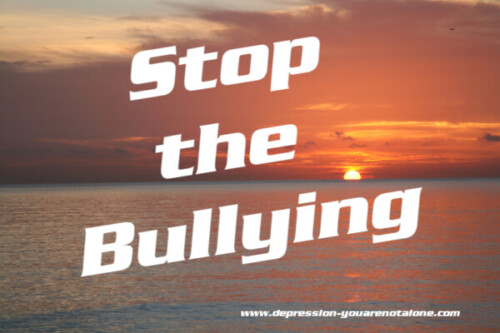As bullying is so prevalent, and destructive we have decided to post a series of informational articles, one per day, beginning July 5 and ending Wednesday, July 14. On Friday, July 16, we will begin a series of informational articles dealing with cyberbullying. – Editorial Team
Effects of Bullying
Bullying can affect everyone—those who are bullied, those who bully, and those who witness bullying. Bullying is linked to many negative outcomes including impacts on mental health, substance use, and suicide. It is important to talk to kids to determine whether bullying—or something else—is a concern.
Kids Who are Bullied
Kids who are bullied can experience negative physical, social, emotional, academic, and mental health issues. Kids who are bullied are more likely to experience:
- Depression and anxiety, increased feelings of sadness and loneliness, changes in sleep and eating patterns, and loss of interest in activities they used to enjoy. These issues may persist into adulthood.
- Health complaints
- Decreased academic achievement—GPA and standardized test scores—and school participation. They are more likely to miss, skip, or drop out of school.
A very small number of bullied children might retaliate through extremely violent measures. In 12 of 15 school shooting cases in the 1990s, the shooters had a history of being bullied.
Kids Who Bully Others
Kids who bully others can also engage in violent and other risky behaviors into adulthood. Kids who bully are more likely to:
- Abuse alcohol and other drugs in adolescence and as adults
- Get into fights, vandalize property, and drop out of school
- Engage in early sexual activity
- Have criminal convictions and traffic citations as adults
- Be abusive toward their romantic partners, spouses, or children as adults
Bystanders
Kids who witness bullying are more likely to:
- Have increased use of tobacco, alcohol, or other drugs
- Have increased mental health problems, including depression and anxiety
- Miss or skip school
The Relationship between Bullying and Suicide
Media reports often link bullying with suicide. However, most youth who are bullied do not have thoughts of suicide or engage in suicidal behaviors.
Although kids who are bullied are at risk of suicide, bullying alone is not the cause. Many issues contribute to suicide risk, including depression, problems at home, and trauma history. Additionally, specific groups have an increased risk of suicide, including American Indian and Alaskan Native, Asian American, lesbian, gay, bisexual, and transgender youth. This risk can be increased further when these kids are not supported by parents, peers, and schools. Bullying can make an unsupportive situation worse.
Source: stopbullying.gov

